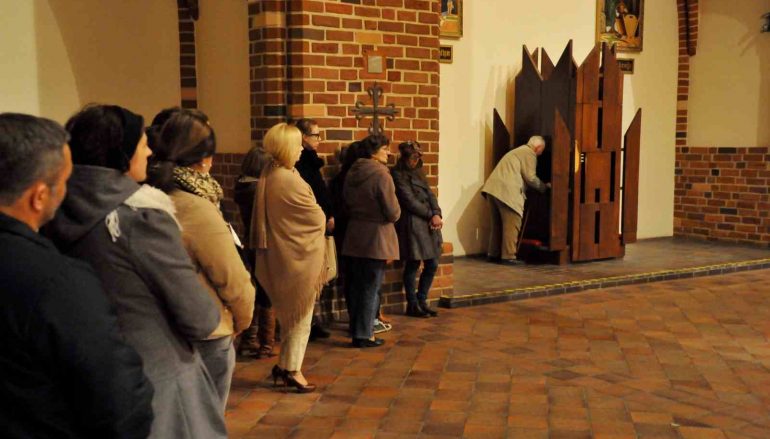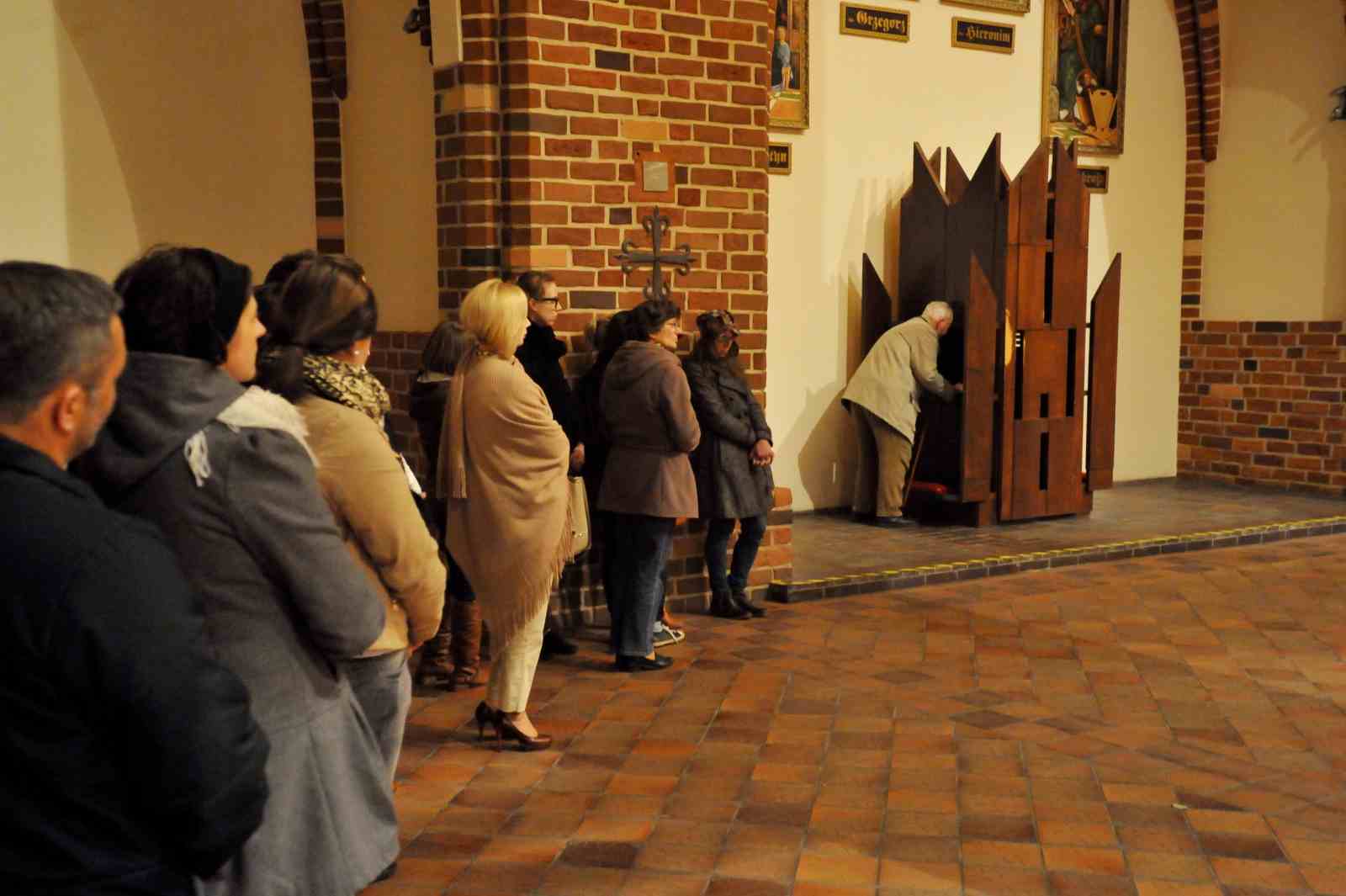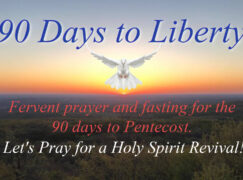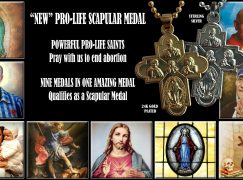

The Sweetest Words Father (The Priest) Can Ever Hear
I’m not a parent, so I cannot personally attest to this experience. But, I was my parent’s child, and I watch and study other parents around me. What I am referring to here are those “proud moments” parents have when their child “achieves” something. It begins with a baby rolling over on their own, to taking their first steps, to making their First Communion, to winning a baseball game, to graduating … and everything in between. These are those “proud moments” parents have when their child pursued something and accomplished it.
Parents, by and large, do all they can to encourage their children to “strive” to become the best version of themselves they can be. Most children respond positively, but their are times when a child rebels against this, and chooses a less noble; less saintly route. When this happens, the parents are no less distraught as the father of the prodigal son.
I was thinking about all of this, lately, because we are in the throes of a very “intense time” … the season of Lent.
Over the past couple of weeks, I have heard hundreds of Confessions. And, I began to feel like a “proud parent.” I began to realize how many of those coming to Confession were saying the words that are music to my ears …
“Bless me, Father, for I have sinned. It has been one month (give or take) since my last Confession.”
I have been in these parishes for 12 years. I can recall when I first got here, and there were only 3, maybe 4, people who went to Confession regularly (frequently). It didn’t happen overnight, as it has been long struggle to deprogram all of us, over these past 12 years, from the idea that the Sacrament of Confession is “no big deal” and that, maybe once a year (or not at all) is sufficient.
For many years, I would receive a plethora of those who were returning to Confession after 5, 15, 20 or more years. My first response is always, “Welcome Back!” And, after hearing their Confession, I let them know about the celebration going on in heaven right now. Sometimes I remind them of the story of the Prodigal Son, and how the father ran out, as soon as he caught sight of his son coming home, and embraced his son with tears of joy. Then I ask them to notice how great they feel when they emerge from the Confessional, and that a good pattern for Catholics is to go once a month, or immediately after mortal sin. “Protect your state of grace at all costs!”
But, the real work of deprogramming occurs in the homilies I give and the way I offer the Mass. This is all about leading people back to the understanding of God’s power … the supernatural power of grace; to being a “spiritual people.” In our world and in our Church, we have been programmed to dismiss the supernatural. Over the past 50 years, much has been done to remove from our lived experience of Catholicism anything that would point to the divinity of Christ, and the supernatural quality of our faith. Much has been stripped from our churches – sacred art, sacred architecture, sacred music, and the sacred elements of the Holy Sacrifice of the Mass – and we have been left in the barren desert of secularism and banality.
St. Paul writes, “The unspiritual man does not receive the gifts of the Spirit of God, for they are foolishness to him, and he is not able to understand them because they are spiritually discerned” (1 Cor 2:14). The unspiritual man is the person who acts only by using his or her human faculties (intelligence and will) and who therefore can be wise only in the things of the world. He remains superficial and worldly. This is a heart that has hardened to the presence of God. The prophet Jeremiah writes “Cursed is the man who trusts in human beings, who seeks his strength in flesh, whose heart turns away from the Lord. He is like a barren bush in the desert that enjoys no change of season, but stands in a lava waste, a salt land and empty earth” (Jer 17:5-6).
However, throughout the Bible (e.g., Ps 1, Jer 17, Rev 22) we are told that the blessed ones are those who trust God and his ordinances; they are like trees planted beside streams of water. These trees are full of life (their leaves stay green) and they fulfill their purpose (produce fruit) even in the face of life’s challenges. The commentary on 1 Corinthians in the Navarre Bible states, “The spiritual man is the Christian reborn by the grace of God; grace elevates his faculties to enable him to perform actions which have a supernatural value — acts of faith, hope, and charity. A person who is in the state of grace is able to perceive the things of God, because he carries with him the Spirit in his soul in grace, and he has Christ’s mind, Christ’s attitude. ‘We have no alternative,’ St. Josemaria Escriva teaches, ‘there are only two possible ways of living on this earth: either we live a supernatural life, or we live an animal life. And you and I can only live the life of God, a supernatural life’ (Friends of God).”
This “state of grace” is everything! It means you belong to God. If a person is not in a state of grace, they belong to the devil. There is no middle ground. Either you are God’s or you are the devil’s. Once a person makes the free-will decision to “leave home” … to leave the Garden of Eden, which is the “paradise of God’s Presence,” they are left to be controlled by the world and the prince of this world. God hates when we wander from Him, but He leaves us free to do so … otherwise we are not free to choose God’s love and God’s presence.
So many are prone to be “conformed to the pattern of this world” (Rom 12:2). Satan is one of the greatest lawyers that ever existed. He and his surrogates offer very compelling arguments for rejecting God’s will and following the whims, trends and fads of the world. We are defenseless, when left to our own power. Why do we see so many Catholic parishes endorsing policies and movements that fly in the face of God’s will? Because they know not “the power of grace.”
You see? Once a person rises to the understanding that they are powerless and, worse yet, vulnerable to the assaults of the devil, if they are deficient of God’s grace, “they are home.” St. John the Baptist said, “He must increase, I must decrease.” That’s it! We become that “spiritual man” once we “break through” to the understanding that, first, I believe in God’s power and, second, that I need God’s power.
As the pastor – Father – of these people God has placed in my charge, the sweetest words this Father can hear is when many in his charge know they cannot go long without being restored and revived in God’s good graces and, therefore, they seek “frequent” Confession …
“Bless me, Father, for I have sinned. It has been one month (give or take) since my last Confession.”
How Sweet it is!








